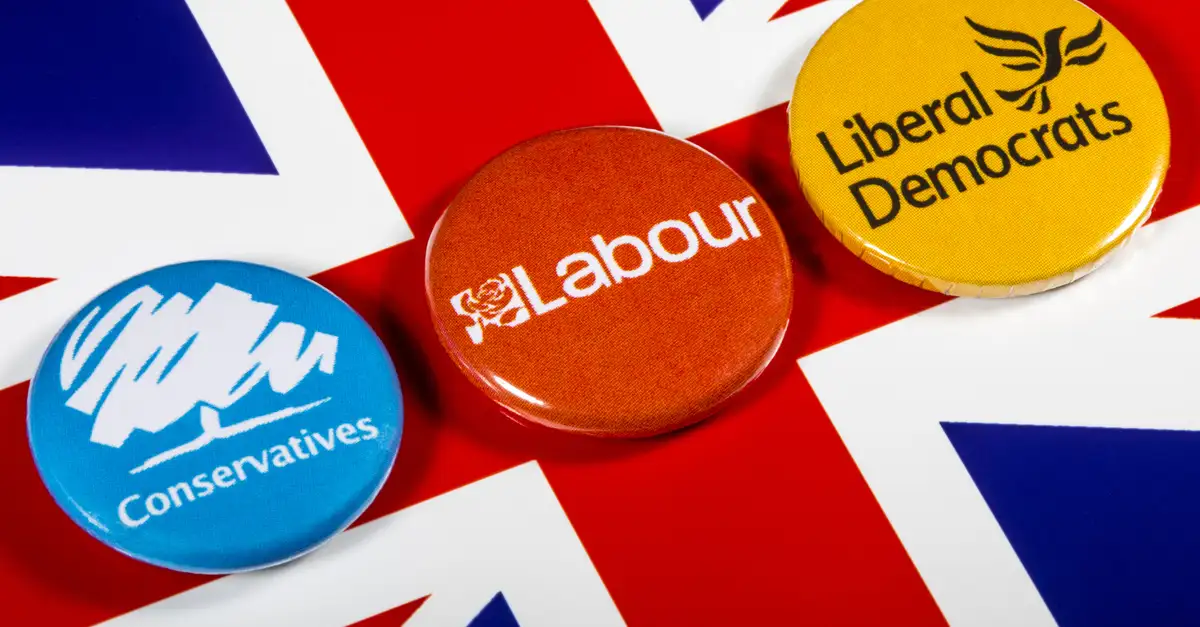Do you know how deep the Google rabbit hole goes? The things Google knows about our purchasing behaviour, personal habits and searches is truly epic in scale, but most of the time it’s hard to see just how much impact this has. Enter Google Trends.
For the uninitiated, Google Trends is a web facility based on Google search data that allows you to see up-to-date search volumes and trends across a huge range of search terms and topics.
Normally, Google Trends is not all that useful for SEO. Unless you’re dealing with a big seasonal brand, you’re unlikely to find any useful data and if you are, you’re unlikely to learn anything that common sense can’t assume for you. If you’re looking for smaller, specific search trends, you’re unlikely to get much value from Google Trends.
National events on the other hand, let’s say snap elections, are big enough to give us a great insight into just how much Google knows. Google, for example, can reveal the high search for “Who should I vote for?” among UK searchers, rated 4th highest general election question in the last seven days. Sure, Google has a vast amount of data and influence over our lives, but Alexa isn’t going to tell you who to vote for.
“Who Should I Vote For?” Are voters happier getting their information from pundits than from the parties themselves?
Google can also reveal UK search interest in the various political candidates over the weeks as we make our way closer to election day.
Why is Corbyn higher searched than anyone else? Does he lack clarity or is it just the news coverage?
Knowing who is being Googled most and seeing the trends change over time can provide valuable data to political scientists and journalists looking to track the popularity of the party leaders, and acts as a useful barometer of UK sentiment.
Google Trends can track not just the top political issues of this election, but show us what people want to know from specific parties. Here are just some of the insights we can see regarding the election:
What Google Trends knows about the election
Here’s just a sample of the insights Google can share with us.
Registering to vote was popular running up to the deadline day, now it’s all about the polls
NHS has been the most searched UK political issue in the last 6 months
“Join the…” searches can demonstrate grassroots political ambition
If you search “Why vote Conservative?” the Tory party website isn’t on page 1. Do they need SEO?
Do people want to be TOLD how to vote rather than learn the policies and decide for themselves?
Lib Dems seem steeped in mystery. People want to know who they are!
We always think we’re centre of the universe, but how much do other nations actually care?
How accurate is Google Trends?
When elections roll around and it’s time to take the pulse of the nation, pundits and political analysts turn to the polls. Polling companies like YouGov, Ipsos MORI and Populus take questions to the people via phone and the internet to perform a scientific survey. During the election of 2015, YouGov successfully polled 360,000 people – a sample size big enough to provide valuable insights.
The trouble with polls is that while they try as hard as possible to maintain scientific standards, they are always biased to at least some degree. That’s why they took a poll 360,000 people instead of 3 million because a biased sample simply doesn’t get better with size. This can be seen in the election of 2015. The polls were biased toward younger people, who are more likely to vote Labour, which is why everyone was surprised when the Conservatives won.
So if polling is biased, can Google Trends reflect a more honest impression of how we’re likely to vote?
Google is a tool that helps you answer questions. Google doesn’t ask you anything, while pollsters will ask you a direct and specific question. If you look at the questions being asked about the parties, we see informational queries from searchers wanting more information in order to inform their decision. All a search interest statistic in a party reveals is that lots of people want information about that party. If Labour is 49% of UK search interest, that doesn’t tell us that 49% of the nation will vote Labour. What it shows is that people want more information about the party.
While you could argue that someone already expressing interest in a party is evidence that they are more likely to vote for them, it’s far from conclusive. After reading the Labour manifesto online, for example, an undecided reader might be put off after their search and vote for Lib Dem instead.
While Google is not going to tell you who will win the election yet, it can’t be denied that having access to so much data could make them a major player in voting in the future, like Facebook was accused of being during the Presidential Election of 2016.
What can Google Trends tell us about the election?
Judging by the search data, it seems that people want to know how and when to vote and why they should vote for one party over another.
The highest trending queries include the manifestos for the big three parties, each one peaking when the manifestos were released.
Registering to vote queries have gradually been ramping up as the 22nd May deadline for registration gets closer. Voting registration peaked at its highest so far on 18th April, when Mrs May announced that she was seeking an election.
As we get closer to the election on 8th June, the trend data will continue to fluctuate. As the fateful day approaches, it will be interesting to see how the trends change, so be sure to pop back and check out the changes.






